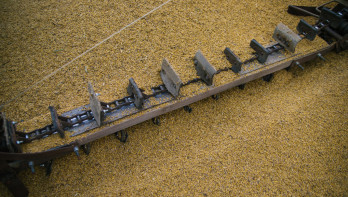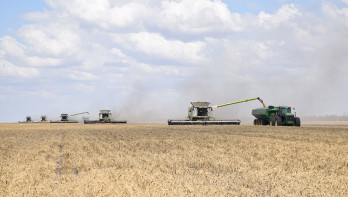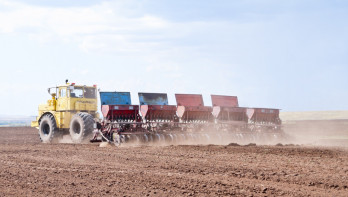Analysis Grains
NATO-chief Rutte causes unrest in wheat market
Wheat saw a significant rise during the last trading session. Tensions are escalating in the Middle East with a missile attack from Iran on Israel. Rutte has started as Secretary-General of NATO and gave signals from which grain traders conclude that the conflict between Ukraine and Russia will not be resolved quickly. Additionally, the weather provides some extra support to wheat.
The December contract for wheat on the Matif made a significant leap yesterday. Wheat gained €5.25, reaching €227.50 per ton. Wheat also rose on the CBoT and closed 2.6% higher at $5.99 per bushel. Corn also had a good day, although the increase was more modest than wheat. The December contract for corn on the CBoT closed 1% higher at $4.29 per bushel. Soybeans, on the other hand, did not perform as well as the grains. Soybeans closed a quarter cent higher at $10.57¼ per bushel on the CBoT.
Escalating geopolitical tensions and disappointments in the Black Sea region have made players in the wheat market nervous. Let's start with geopolitics. The Middle East is dominating the news. Iran fired around 180 rockets at Israel yesterday. Israel has previously stated that a direct attack from Iran cannot go unanswered. Analysts suggest that the unrest in the region, including wars in Gaza and Lebanon, could further escalate. Experts fear that this will not go unnoticed in the grain market.
Our former Prime Minister Mark Rutte took over the chairmanship from Jens Stoltenberg yesterday and started as Secretary-General of NATO. Rutte mentioned Ukraine as a top priority and stated that the country belongs in NATO. "We must ensure that Ukraine gains the upper hand in the conflict," Rutte said in response to journalists' questions. In the grain trade, players seem to interpret this as a signal that the change in leadership at NATO does not mean a quicker end to the war in Ukraine.
Another Russian region facing problems
In Russia, the weather is not cooperating for grain growers. The West Siberian regions of Tomsk and Krasnoyarsk declared a state of emergency in recent weeks due to heavy rains. Yesterday, it was the governor of the Voronezh region, which borders Ukraine, who declared a state of emergency. This was not due to problems with rainfall but because of drought. In May, a state of emergency was also declared here due to frost. By declaring a state of emergency, farmers can claim their weather insurance and government support. Voronezh harvested around 6 million tons of grain in 2023, making it the fifth largest grain producer in Russia. The price of Russian wheat is on the rise. Ikar raised the price of Russian Black Sea wheat by $5 to $222 per ton.
Export
In the EU, wheat exports are not going smoothly. Up to September 29, 6.14 million tons of wheat were exported compared to 8.28 million tons last season. Ukraine also exported less wheat in September. According to the Ukrainian Ministry of Agriculture, 3 million tons were exported, which is 16% less than in August. Furthermore, the ministry announced that Ukrainian farmers have sown 1.82 million hectares of winter grains. This represents 35% of the planned area. Of the sown area, approximately 1.7 million hectares are winter wheat.




